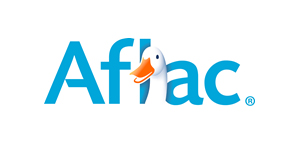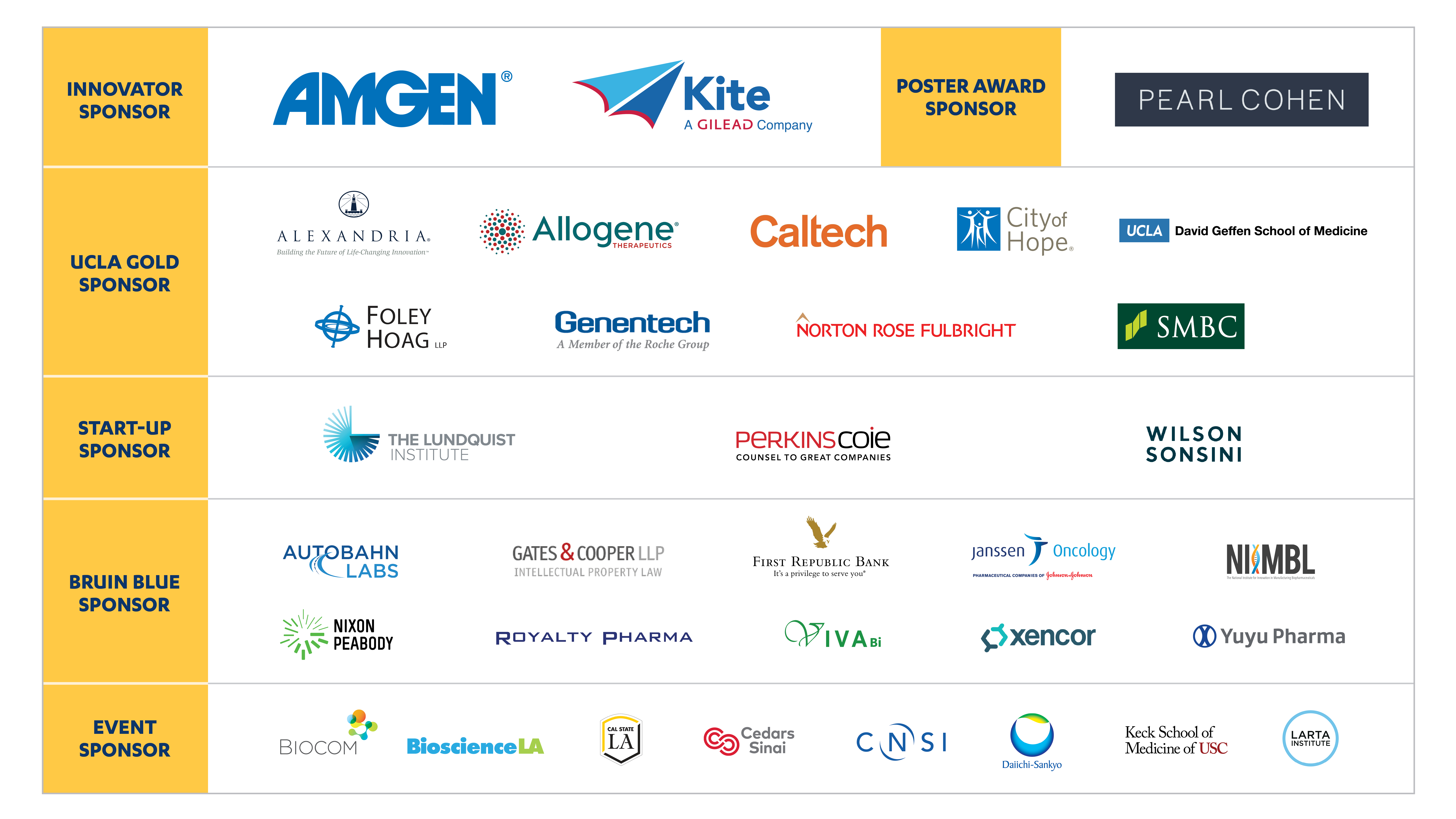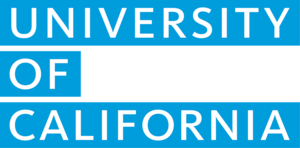
- Need Technical Assistance? ucbpsymposium@getvfairs.io
Cancelling your registration will remove your access to the event. If you proceed, you will no longer be able to participate or access event-related materials.
Deleting your account will remove your access to the event.
***Note: you can register directly on vFairs if you have a valid Promo Code***

If you are a UC benefits professional, this event was created just for you! Following a special welcome from a surprise guest, you’ll have the opportunity to hear from the Associate Vice President – Total Rewards and meet the new Senior Executive Director of Benefits Programs & Strategy. You’ll learn all about 2025 health and welfare benefits for faculty, staff and retirees, and upcoming changes to UCPath and Redwood. You can attend live Q&A sessions with UC’s benefits partners, and get to know your colleagues from other UC locations. We’ll have great music, fun break activities, and lots of prize opportunities. Come join us!
































Professor, Department of Cardiology
Profesor, Department of Molecular, Cell and Developmental Biology
Director, UCLA Cardiovascular Medicine Research Theme
Arjun is a Professor in the Department of Medicine and Department of Molecular , Cell and Developmental Biology. He is a member of the Cardiovascular Research Laboratories and the Broad Stem Cell Institute at UCLA. In addition he is affiliated with the Molecular Biology Institute and the Jonsson Cancer Comprehensive Cancer Center (Cancer and Stem cell Biology Program) and holds graduate program affiliations with the MCIP (Molecular Cellular and Integrative Physiology), CDB (Cell and Developmental Biology) and (MP) Molecular Pharmacology Graduate program home areas. Arjun got interested in stem cell biology and cardiovascular biology, when as a trainee, he isolated endothelial progenitors from his own blood and successfully grew out blood vessels in a laboratory dish. Arjun completed his research and clinical training at the Mayo Clinic and Duke University and was faculty at the University of North Carolina before relocating to UCLA. He has won numerous awards including the Katz award for basic science research from the American Heart Association, Ellison Medical Foundation scholar in Aging award, Keating award from the American College of Cardiology in hypertension and peripheral vascular disease and the Pathway to independence award from the NIH. He received the Oppenheimer award for innovative research at UCLA and is currently the James Eason Cardiovascular Scholar at UCLA. The work in his lab has been supported by multiple agencies including the NIH, Department of Defense, Ellison Medical Foundation, American Heart Association and the James Eason Cardiovascular Foundation.
Division Chief, NanoMedicine
Professor, Department of Medicine,
Professor, Department of Pediatrics and Public Health,
Director, UC Center for Environmental Impact of Nanotechnology
Andre Nel is a Distinguished Professor of Medicine at UCLA, where he has established a large federally-funded nanotechnology research program dealing with nanomaterial safety, and nanotherapeutics. The UC Center for the Environmental Implications of Nanotechnology (UC CEIN) is a premier think tank for the safe and sustainable implementation of nanotechnology in the US, while the team-based science efforts he has helped to establish as Research Director of the California Nanosystems Institute have spearheaded nanomedicine translation and commercialization on the UCLA campus. Professor Nel is a recipient of the Harry Truman Award and also received the California Governor’s Environmental Economic Leadership Award on behalf of UC CEIN. He plays a national leadership role in science, biomedical research, nanotechnology and policy. He served as a chair of an internal NIH study section and was a NSF panel member for producing a comprehensive US Government blueprint for nanotechnology development in the US from 2010-2020. He was a member of the US Bilateral Presidential Commission for technology cooperation with Russia, and served as a panel member on Pres. Obama’s PCAST panel for strategizing the NNI technological innovation and commercialization. Dr Nel represented the US State Department and the NIH in cooperative research agreements with the Chinese Academy of Sciences, in which he was recognized as Honorary Foreign Professor. In addition to groundbreaking work in nanotechnology, Dr Nel was Principal Investigator of the NIH-funded UCLA Asthma Center and received the John Salvaggio Award for outstanding service to the American Academy of Asthma Allergy and Immunology. His current nanomedicine research addresses targeting of the immune system by nanoparticles to accomplish chemotherapy and immunotherapy of cancer, as well as the treatment of allergic disorders and autoimmune disease by tolerogenic nanoparticles. He is a frequently invited plenary speaker at international scientific conferences, listed as a Clarivate Analytics highly cited scholar, inventor of multiple patents and founder of two startup companies.
Professor, Department of Chemistry and Biochemistry
Professor, Department of Molecular Biology
Prof. Carla Koehler came to UCLA after doing post-doctoral research in the laboratory of Dr Gottfried Schatz at the Biozentrum, Basel, Switzerland. Her research characterized a new protein import pathway in the mitochondrion and linked a defect in protein import with the inherited disease deafness-dystonia syndrome. Dr. Koehler completed her graduate studies at Iowa State University, characterizing the inheritance of mitochondrial DNA during her M.S. studies and studying dimorphism in Saccharomyces cerevisiae. Dr. Koehler is a former Damon Runyon Scholar and current Established Investigator of the American Heart Association. Dr. Koehler is an Associate Editor for Current Genetics. She has been a member of the Molecular Biology Institute, Jonsson Cancer Center, and the Brain Research Institute since 1999. Her current research focuses on developing vertebrate models for mitochondrial diseases as well as using yeast for mechanistic studies on mitochondrial biogenesis.
Prof. Koehler’s specific interests lie in mitochondrial biogenesis, particularly the mechanism by which proteins are imported into the mitochondrial inner membrane. Their laboratory uses a combined genetic and biochemical approach to understand this basic process in the model organism Saccharomyces cerevisae. But they have expanded into mammalian systems now with the identification of the molecular basis of a mitochondrial disease with symptoms of deafness, blindness, and movement disorders. This disease is caused by a defect in import of inner membrane proteins. Current studies continue in both mammalian and yeast systems.Their broad interests are to understand mitochondrial biogenesis and how it relates to cellular homeostasis.
Co-Director, UCLA Broad Stem Cell Research Center
Professor and Rebecca Smith Endowed Chair, Pathology and Laboratory Medicine
Professor, Department of Pediatrics
Gay M. Crooks is the Rebecca Smith Professor in the Department of Pathology & Laboratory Medicine and Professor of Pediatrics in the David Geffen School of Medicine, UCLA. She is Co-director of the Broad Stem Cell Research Center and Director of the Cancer and Stem Cell Biology Program, Jonsson Comprehensive Cancer Center at UCLA.
Dr Crooks graduated from medical school at the University of Western Australia and completed her FRACP (pediatrics) at Princess Margaret Hospital for Children prior to her fellowship training in Pediatric Hematology-Oncology at Childrens Hospital Los Angeles (CHLA). In 1993, she joined the faculty of the University of Southern California and established her laboratory and clinical programs in the Division of Research Immunology and Bone Marrow Transplantation at CHLA. In 2009 her research program moved to UCLA, where in addition to running her research program, Dr. Crooks is a pediatric bone marrow transplant physician in the Division of Pediatric Hematology-Oncology at Mattel Children's Hospital, UCLA
E. Richard Stiehm Endowed Chair, Associate Professor, and Division Chief, Department of Pediatrics
Division Chief, Department of Immunology, Allergy, and Rheumatology
Physics at Brown University where he earned his Sc.B. with honors in 1993, studying mathematical neural networks in Prof. Leon Cooper's group. During this time he developed software for Microsoft and Apple, and performed research at the National Institutes of Health. He earned his M.D. degree from the Brown University School of Medicine in 1996. He then studied protein crystallography under Prof. Robert Fletterick at UCSF and graduated with a Ph.D. in Biophysics in 2000. Returning to clinical training, he completed a Pediatrics residency at the Children's Hospital of Philadelphia in 2003 and a clinical fellowship in Allergy & Immunology at Boston Children's Hospital in 2006, where he specialized in the care of children with immunodeficiencies, autoimmunity, auto-inflammatory disorders, asthma, and allergies. During a joint post-doctoral fellowship at Harvard Medical School (under Prof. Arlene Sharpe) and in the Harvard Chemistry & Chemical Biology Dept. (under Prof. George Whitesides), he worked on T cell inhibitory pathways and development of microfabricated tools to capture and study immune cells.
He transitioned to Stanford University in 2009 to start his own lab in the Department of Pediatrics, with courtesy appointments in the Department of Materials Science and Engineering and Microbiology and Immunology. His lab addressed fundamental, long-standing questions in immunology using innovative nanotechnological approaches to visualize and manipulate cells. In November 2016, he was recruited to UCLA
A major research focus of his lab is in understanding T cells, the major coordinating cells of the immune response, with a specific focus on mechanobiology. The group studies how mechanical forces influence cells, with projects spanning multiple scales from the molecular level (how receptors in T cells sense forces), to the cellular (why T cells vigorously push and pull upon other cells), to the tissue (how T cells are influenced by the mechanical microenvironment of diseased tissues). His lab has innovated tools and techniques in the use of biological atomic force microscopy (AFM) to interrogate cells and tissues. The lab has been studying the role of various cytoskeletal molecules in regulating T cell receptor and costimulatory receptor signaling. His group is developing nanofabricated tools to help T cells fight cancer and infections. His group is also developing new approaches for developing vaccines for T cells. There are projects in the lab related to T-cell metabolism.
The second major focus of his lab is in improving the diagnosis and treatment of patients with rare, genetic immune diseases (primary immunodeficiency and immune dysregulation diseases). The group has identified a transcriptional defect that underlies severe, invasive fungal infections with coccidiodiomycosis (Valley Fever), and has developed two new immunomodulatory treatment strategies that are being launched as clinical trials in 2020. His group has developed CyTOF (cytometry by time of flight mass spectrometry) as a diagnostic tool for immune diseases. There are projects in the lab to develop humanized mice to recapitulate human primary immunodeficiency diseases and treatments. His lab has developed capabilities to study novel disease-causing mutations across a number of diseases in children and adults. He is a funded co-investigator of the NIH Undiagnosed Diseases Network site at UCLA. Dr. Butte helped found and launch the California Center for Rare Diseases at UCLA, a group of doctors and scientsts dedicated to advancing the diagnosis, treatment, and cure of rare diseases
Professor, Department of Human Genetics and urology
Director, UCLA Jonsson Comprehensive Cancer Center Cancer Data Science program
Associate Director, Cancer Informatics, UCLA Institute for Precision Health
Paul Boutros earned his B.Sc. degree from the University of Waterloo in Chemistry in 2004, and his Ph.D. degree from the University of Toronto, Canada, in Medical Biophysics in 2008. At Toronto, he also earned an executive M.B.A. from the Rothman School of Management. In 2008, Boutros started his independent research career at the Ontario Institute for Cancer Research first as a fellow (2008–2010) and then as principal investigator (2010–2018). He moved to California to join the UCLA faculty in 2018.
he research in Boutros’ laboratory lies at the intersection of clinical, molecular and imaging data. He focuses on how these diverse pieces of information can be linked to personalize therapy for cancer patients. By applying techniques from modern data science strategies, particularly machine-learning, he creates biomarkers to help ensure therapies are selected that maximize cure and minimize morbidities. His work sometimes centers on specific tumor types, particularly prostate and thyroid, but often includes others in conjunction to identify general and tumor-type specific features of cancer. Some of his recent studies focus on how cancers develop differently based on the sex, age or ethnic features of the patient.
Prof. Boutros has published over 200 peer-reviewed papers, and in his leadership roles as professor in the departments of human genetics and urology, he is currently working to support personalizing therapy for cancer by developing novel statistical methodologies. He leads the ICGC-TCGA DREAM Somatic Mutation Calling Challenge that is setting global standards for analyzing cancer genomic data, and drives programs in cancer genomics, data science and biomarker translation.
He has received numerous honors for his work as a scientist and researcher, including the Prostate Cancer Canada Rising Star in Prostate Cancer Research award, the Terry Fox New Investigator Award, the University of Waterloo Young Alumni Award and the Early Career Graduate Student Teaching Award. In 2018 he was awarded the Dorval Prize by the Canadian Cancer Society, recognizing the best national early career investigator.
Professor-in-Residence, Department of Medicine
Professor-in-Residence, Department of Urology
Dr. Rettig received his medical degree from Duke University and internal medicine residency at the University of Washington, before going on to a hematology-oncology fellowship at UCLA. Dr. Rettig’s focus is on management of genitourinary malignancies, with a clinical emphasis on advanced prostate cancer and research emphasis on identifying biochemical targets for therapeutic translation in castration-resistant prostate cancer and clear cell renal cell carcinoma. Dr. Rettig also serves as the director of the clinical trials program in prostate cancer at UCLA.
Professor and Chair, Department of Molecular, Cell and Developmental Biology
Amander Clark PhD is an Australian born, American stem cell biologist specializing in pluripotency and germline cell differentiation. Her laboratory was the first in the world to isolate prenatal human germline cells for genomic analysis, and to identify the stages of human prenatal germline epigenetic reprogramming at single base resolution. Results from the Clark Laboratory provide the fundamental basis for translational projects related to in vitro gametogenesis (IVG), germ cell tumors and health outcomes in offspring. Dr. Clark is Professor and Chair of the Department of Molecular Cell and Developmental Biology, she is a key member of the Eli and Edythe Broad Center of Regenerative Medicine and Stem Cell Research and is a member of the executive committee for the International Society for Stem Cell Research. Dr. Clark is a recipient of a Young Investigator Award from the Lance Armstrong Foundation, a Research and Career Development Award from STOP Cancer, a Research Award from the Concern Foundation and a Young Investigator Award from the International Society for Stem Cell Research. Dr. Clark is a member of the Hinxton Group, an International consortium of scientists, ethicists and policy makers responsible for generating position statements that affect policy for the use of pluripotent stem cell derived gametes and germline genome editing in human embryos.
Professor, Department of Pediatrics, Pediatric Infectious Diseases,
Professor, Department of Molecular & Medical Pharmacology
Dr. Paul Krogstad attended UCLA and received his Bachelor of Science in Cybernetics and a Master's Degree in Engineering. After leaving Los Angeles, he attended the Tulane University School of Medicine in New Orleans, Louisiana, where he also completed his training in Pediatrics.
He trained as a specialist in Pediatric Infectious Diseases at the University of Washington in Seattle, then returned to UCLA for additional postdoctoral training in human retrovirology. He joined the UCLA faculty in 1992 and is now a Professor in the departments of Pediatrics and Pharmacology.
Dr. Krogstad's research has largely focused on molecular virology and the pathogenesis of viral diseases. His studies currently include evaluation of new treatments for HIV infected children and adolescents and the discovery of antiviral agents for enterovirus infections. In addition, he has collaborated with others in the study of Valley Fever (Coccidioidomycosis).
Professor In-Residence, Department of Neurology
Dr. John is an accomplished medicinal chemist and leads the Drug Discovery Laboratory (DDL) at the Department of Neurology at UCLA. Dr. John is a member of the Alzheimer's Disease Program in the Mary S. Easton Center for Alzheimer's Disease. The DDL team consists of scientists and skilled technicians with basic science and drug development experience who have joined the lab to find effective, safe therapeutics for the treatment of Alzheimer's disease (AD). The DDL team identifies preclinical candidates and then establishes partnerships to progress these therapeutic agents from bench to bedside. Previously Dr. John was with Athena Neurosciences and Elan Pharmaceuticals for 18 years where he led a team of medicinal chemists developing drugs for central nervous system (CNS) diseases with a focus on AD. His work at Elan led to clinical candidates that went into advanced human trials. Dr. John is an inventor on over 100 pending or issued patents on compounds and analogs for CNS related targets.
Professor, Integrative Biology and Physiology, Neurology, Brain Research Institute
Education Liaison, Center for Duchenne Muscular Dystrophy
Dr. Crosbie received her B.S. in Biochemistry at Texas A&M University with Departmental Honors for Excellence in Research. She was selected as the Distinguished Biochemistry Undergraduate. She earned a Ph.D. in Biochemistry from UCLA in the laboratory of Professor Emil Reisler, Ph.D. in which she investigated the structural determinants of actin function. She was one of a few graduate students who received departmental awards for both research and teaching accomplishments. Dr. Crosbie was supported by the Robert G. Sampson Neuromuscular Disease Postdoctoral Fellowship from the Muscular Dystrophy Association during her postdoctoral training with Professor and Chair Kevin P. Campbell, Ph.D. HHMI Investigator at the University of Iowa Carver College of Medicine. She received the Excellence in Postdoctoral Research Award at the University of Iowa.
Prof. Rachelle Crossbie’s research program focuses on determining the pathogenetic mechanisms of muscular dystrophy. Members of the lab are examining the muscle function using biochemical, molecular, and cellular approaches. There are many forms of muscular dystrophy caused by primary genetic mutations within different muscle genes. For instance, mutations in dystrophin are responsible for causing Duchenne muscular dystrophy (DMD) while mutations in any of the four sarcoglycan genes cause limb-girdle muscular dystrophy. Congenital and Emery-Dreyfus muscular dystrophies are caused by mutations in laminin and emerin, respectively. These muscle diseases differ based on the types of muscles that are affected, clinical progress of the disease, and mode of inheritance.
Her lab is interested in 1) determining why these proteins are critical for normal muscle function 2) creating animal models for specific forms of muscular dystrophy using transgenic and knockout mouse technology and 3) developing new therapeutic agents. They are in the process of testing FDA-approved compounds in mouse models of muscular dystrophy. In addition, they are developing novel animal models for muscle proteins that are known to rescue muscular dystrophy.
Professor-in-Residence and Neuromuscular Program Director, UCLA Neurology
Co-Director, Center for Duchenne Muscular Dystrophy
Prof. Melissa Spencer obtained her PhD from UCLA and established her independent lab in 1999. Her lab utilizes advanced genetic engineering technology to develop new treatments for Duchenne muscular dystrophy and limb girdle muscular dystrophy. These approaches include CRISPR based gene editing platforms as well as gene replacement therapies.
The lab is interested in both non-viral and viral delivery approaches for delivering these therapies. In collaboration with Drs. Courtney Young and April Pyle, they developed a CRISPR based therapy that is being translated through their startup MyoGene Bio.
The Spencer lab is also interested in defining how the immune system promotes muscular dystrophy and as a separate line of inquiry, how immune cells respond to AAV exposure. Understanding this interaction can lead to new therapeutic targets to improve the safety and efficacy of gene therapies that rely on AAV as a delivery vehicle. Dr. Spencer serves on the Scientific Advisory Committee for the Muscular Dystrophy Association, Parent Project Muscular Dystrophy and the Coalition to Cure Calpain 3. She was awarded a Presidential Early Career Award for Scientists and Engineers (PECASE) in 2001.
Dr. Eric Esrailian is the Chief of the Vatche and Tamar Manoukian Division of Digestive Diseases at the David Geffen School of Medicine at UCLA. He attended the University of California at Berkeley and graduated with a major in integrative biology and a minor in English. He subsequently graduated from the Loma Linda University School of Medicine and completed a residency in internal medicine at the University of Southern California. He completed his gastroenterology fellowship at UCLA where he also obtained a masters of public health degree at the UCLA Fielding School of Public Health.
He is also a graduate of the Executive Program in Management from the UCLA Anderson School of Management. Dr. Esrailian served on the Medical Board of California from 2010-2011 after being appointed by Governor Arnold Schwarzenegger. He has a particular interest in the development of biomedical innovations, value in health care, medical education, initiatives towards patient-centered care, and connections between health and human rights.
In 2012, he was awarded The Lincy Foundation Chair in Clinical Gastroenterology. He is closely involved in growth strategy and strategic planning efforts for UCLA Health. He also works to facilitate community engagement with a number of other schools and departments within the UCLA campus and its Los Angeles community partners, and he was on the campus steering committee for the Centennial Campaign. In 2020, he launched the UCLA Leaders of Tomorrow series to emphasize essential leadership skills through some of the most influential and successful leaders in our community. Dr. Esrailian was named the 43rd Annual Lester Breslow Distinguished Scholar and Lecturer by the UCLA Fielding School of Public Health. In 2017, the university designated Dr. Esrailian as a UCLA Optimist --among its notable alumni and faculty dedicated to solving the world's problems.
Gene is co-chairman of Global Mergers and Acquisitions (M&A) and co-chairman of the Global Technology, Media and Telecom Group. He joined the M&A department in New York in 1984 and Los Angeles in 1987. He became a partner in 1992.
Gene is chairman for the Alliance for Southern California Innovation. He serves on the boards of the Pacific Council on International Policy, the Los Angeles 2028 Organizing Committee and Common Sense Media. Between 2015 and 2018, Gene served as the CEO of Los Angeles 2024 and then Los Angeles 2028, the organization responsible for bidding for and organizing the Los Angeles Olympic and Paralympic Games.
Gene is a member of the Stanford University Board of Trustees and a member of the Advisory Council of the Stanford Graduate School of Business. Gene earned an MBA from Stanford University in 1984 and an AB from Harvard University in 1980.
Martin Jarmond was hired on May 19, 2020 as UCLA’s Alice and Nahum Lainer Family Director of Athletics, becoming the ninth athletic director in school history.
Jarmond came to UCLA from Boston College, where he served as the school’s Director of Athletics for three years. During his time there, he orchestrated the Eagles' first-ever strategic plan, a comprehensive five-year goal to advance the program by fostering student-athlete formation, strengthening competitive excellence, increasing external engagement and enhancing facilities. The strategic plan was supported by BC's first-ever athletics-only capital campaign, at the time, the largest campaign of any Atlantic Coast Conference institution at $150 million. The campaign has raised $121 million to date. Among the new ventures he brought to Boston College were a student-athlete fueling station, a program for first-generation student-athletes, and a fan council focused on improving the atmosphere and fan experience.
Boston College teams enjoyed on-the-field success during his tenure, with the football team playing in a bowl game each season, the women's lacrosse team reaching the national championship game in 2018, the 2019 women's field hockey team advancing to its first Final Four, and the men's and women's hockey teams combining for three conference championships in the last two years. Among Jarmond's successful coaching hires were women's basketball coach Joanna Bernabei-McNamee, who was named ACC Coach of the Year this season after leading BC to its best ACC finish in school history, and women's volleyball head coach Jason Kennedy, who turned around a seven-win team and won 20 games in just his second year.
Academically, Boston College continued to thrive under Jarmond's leadership. The school ranks eighth in the nation with an overall Graduation Success Rate (GSR) of 94% in all sports among Football Bowl Subdivision (FBS) schools, with 12 teams scoring a perfect 100 GSR. Boston College also ranks among the highest in the nation in Academic Progress Rate (APR). Six Eagles teams recently received the NCAA APR Public Recognition Award, which is bestowed upon teams finishing in the top 10% of their respective sport, based on the multi-year APR. Included in those six was football, one of only 13 football programs at the FBS level to earn a Public Recognition Award, and one of only five to earn an award for the last three years.
Prior to joining Boston College in 2017 and becoming the youngest athletic director of any Power Five institution at age 37, Jarmond previously served as deputy director of athletics at Ohio State, moving up the ranks after arriving as an associate athletic director for development in 2009. During his time at Ohio State, he was the lead administrator for a variety of sports, including football and men's basketball, and directed external and internal relations and day-to-day operations. He also had responsibility for football scheduling, served on the NCAA Division I Women’s Golf Committee, and was a member of the inaugural College Football Playoff National Championship Advisory Group and the Rose Bowl Advisory Committee. As Ohio State Athletics' chief advancement officer, Jarmond helped raise more than $120 million between 2010-2012.
Jarmond was also an assistant athletic director for development for seven years at Michigan State, where he served on the athletic director's executive leadership team. He was a key member of the $1.2 billion "Campaign for MSU" development team and a liaison between Michigan State's university development and alumni association leadership.
Jarmond recently served on the NCAA Division I Men's Basketball Oversight Committee and is on the John McLendon Minority Scholarship Foundation Board of Directors. In 2017 and 2019, he was named to Sports Business Journal's Forty Under 40.
A native of Fayetteville, North Carolina, Jarmond, 40, earned a bachelor's degree in communication studies from the University of North Carolina at Wilmington. A two-year captain of the men's basketball team, he led his team to the program's first-ever NCAA tournament appearance in 2000 and earned Colonial Athletic Association All-Academic honors in 2001. He holds both a M.B.A. and a master's in sports administration from Ohio University
Dr. Rimoin is a Professor of Epidemiology at the UCLA Fielding School of Public Health and Infectious Disease Division of the Geffen School of Medicine. She is the Director of the Center for Global and Immigrant Health and is an internationally recognized expert on emerging infections, global health, surveillance systems, and vaccination.
Her pioneering work has focused on the emergence of infectious disease in populations living at the intersection of animal-human contact primarily in the Democratic Republic of Congo (DRC). It has led to fundamental understandings of the long-term consequences of Ebolavirus in survivors and yielded several important discoveries including the emergence of monkeypox since the cessation of smallpox vaccination, the identification of a new pathogen (Bas Congo Virus) and novel strains of Simian Foamy Virus in humans.
Rimoin has been working in the DRC since 2002, where she founded the UCLA-DRC Health Research and Training program to train U.S. and Congolese epidemiologists to conduct high-impact infectious disease research in low-resource, logistically-complex settings. Her team is also leading efforts to assess vaccine efficacy and durability of immune response to Ebolavirus vaccine in outbreak settings in the DRC. Her team also leads health mapping activities for better disease surveillance to better understand population immunity to vaccine preventable diseases and coordinated studies of the epidemiology, natural history, and pathogenesis of acute and asymptomatic viral hemorrhagic fever infections in populations. She has been a strong advocate for capacity building in low resource settings and conducting disease surveillance in complex emergencies. Rimoin is currently leading a study of COVID19 transmission among the Los Angeles health workforce.
Dr. Rimoin has published more than 70 research articles and book chapters. Her work has been featured in The New York Times, The Atlantic, The Economist, The Wall Street Journal, The Washington Post, WIRED, Discover, Scientific American, Popular Science, Forbes, National Geographic, Nature and Science. She also appears frequently on television and radio discussing major issues surrounding disease emergence and has recently been a leading voice on the COVID19 pandemic in national news for CNN, MSNBC and Fox Business News.
Major supporters of Dr. Rimoin’s research include: the Food and Drug Administration, National Institute of Allergy and Infectious Diseases of the US National Institutes of Health (NIAID-NIH), the Bill and Melinda Gates Foundation, the Faucett Catalyst Fund and other private and public organizations. She was recently inducted as a Fellow of the American Society of Tropical Medicine and Hygiene.
Dr. Rimoin earned her B.A. in African History at Middlebury College, M.P.H. (Community Health Sciences) at UCLA Fielding School of Public Health and Ph.D. (International Health) at Johns Hopkins Bloomberg School of Public Health. She also served as a Peace Corps Volunteer in Benin, West Africa where she began her career in public health with UNICEF and the Carter Center.
